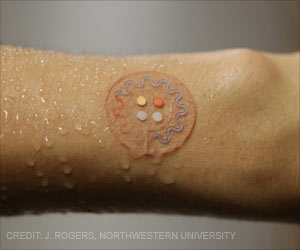Elevate your well-being during National Handwashing Awareness Week. Know the history, facts, and effective techniques for a healthier, cleaner you.
- National Handwashing Awareness Week is celebrated during the first full week of December
- It underscores the proactive role of handwashing in preventing a range of illnesses, from common infections to more severe diseases //
- Essential steps endorsed by experts ensured thorough handwashing that covered all areas and fostered a healthier and cleaner environment
Hand Hygiene
Go to source).
Activities during National Handwashing Awareness Week
Do it Right:
- Experts recommend thorough handwashing with soap and clean water for at least 20 seconds.
- Ensure a robust lather, cleaning the back of hands, spaces between fingers, and under nails.
- Dry hands with a clean towel.
Memorize the Five Steps:
- The CDC labels handwashing as a "do-it-yourself vaccine" with five easy steps: Wet, lather, scrub, rinse, and dry.
Learn the Four Principles of Hand Awareness:
- Endorsed by medical authorities, these principles include washing hands when dirty or before eating, avoiding coughing or sneezing into hands, and refraining from touching eyes, nose, or mouth with fingers.
Five Super Clean Facts About Hand Hygiene
Handwashing Equals Happiness:
According to the CDC, handwashing can prevent a significant number of diarrhea-related illnesses and infections, including the flu.Beware the Twin Killers for Kids:
Diarrheal diseases and pneumonia, responsible for 1.4 million child deaths under age 5, emphasize the importance of hand hygiene.The Dirty Secret of Public Restrooms:
Shockingly, only 31 percent of men and 65 percent of women wash their hands after using public restrooms, as reported by the CDC.Handwash Your Way to Health:
Handwashing reduces the need for antibiotics, curbing antibiotic resistance and preventing various illnesses.
Why We Love National Handwashing Awareness Week
Healthy Hands are Happy Hands:
Prioritizing hand hygiene contributes to overall well-being, fostering happiness within homes.Preventing the Spread of Germs:
Considering the multitude of surfaces touched daily, handwashing is a crucial defense against the transmission of harmful microbes.Let's Shake on It:
The week serves as a reminder for all, including medical professionals and food handlers, to take cleanliness and hygiene seriously.
Note on Historical Significance: Handwashing in Healthcare
The history of handwashing is intertwined with breakthroughs in medical science and the understanding of infectious diseases. Dr. Ignaz Semmelweis, a Hungarian physician in the mid-19th century, made significant contributions by advocating handwashing in medical settings, demonstrating a profound impact on infection control.Significance in Healthcare
Semmelweis's work laid the foundation for understanding the importance of hand hygiene in healthcare settings. Over time, handwashing became a fundamental practice to prevent the spread of infections, shaping modern healthcare practices.
Evolution of Handwashing Awareness
The significance of handwashing extends beyond healthcare facilities, with initiatives like Global Handwashing Day and National Handwashing Awareness Week emphasizing its societal impact.
Public Health Impact
Handwashing has proven instrumental in preventing the transmission of various illnesses. Public health campaigns highlight the role of hand hygiene in reducing the burden on healthcare systems, especially during outbreaks.
Global Impact and Cultural Shifts
The importance of handwashing has transcended cultural boundaries, with increased awareness globally. Efforts by international organizations and governments, accelerated by the COVID-19 pandemic, underscore its critical role in safeguarding public health.
"Embrace the simplicity of handwashing; it's a timeless practice with the power to shape a healthier future."
Reference:
- Hand Hygiene - (https://pubmed.ncbi.nlm.nih.gov/29262113/)
Source-Medindia









